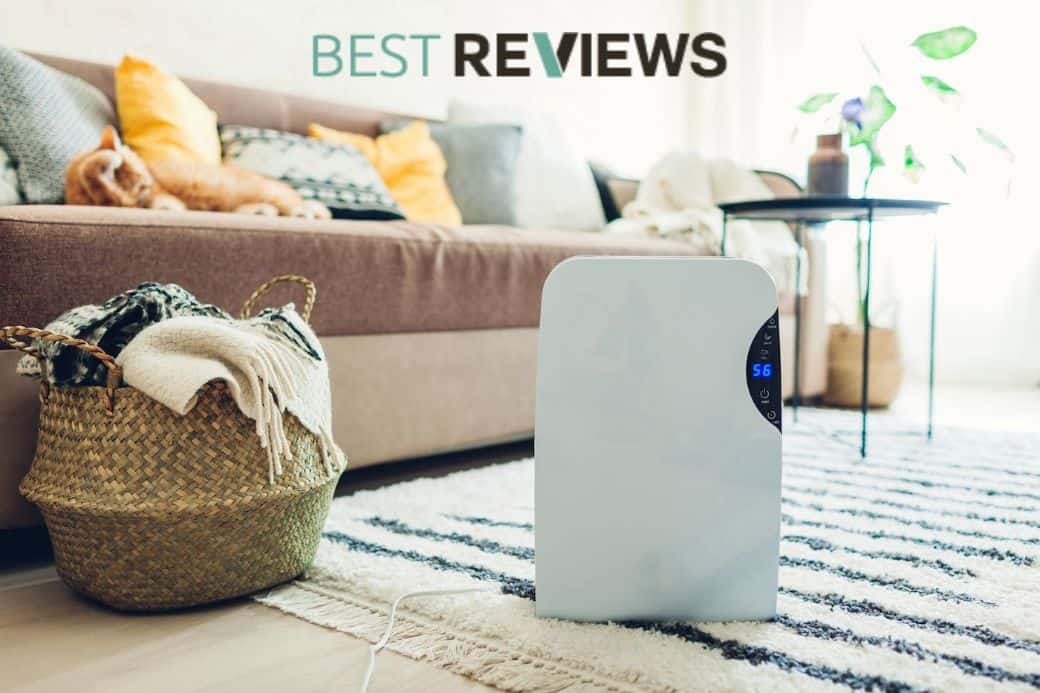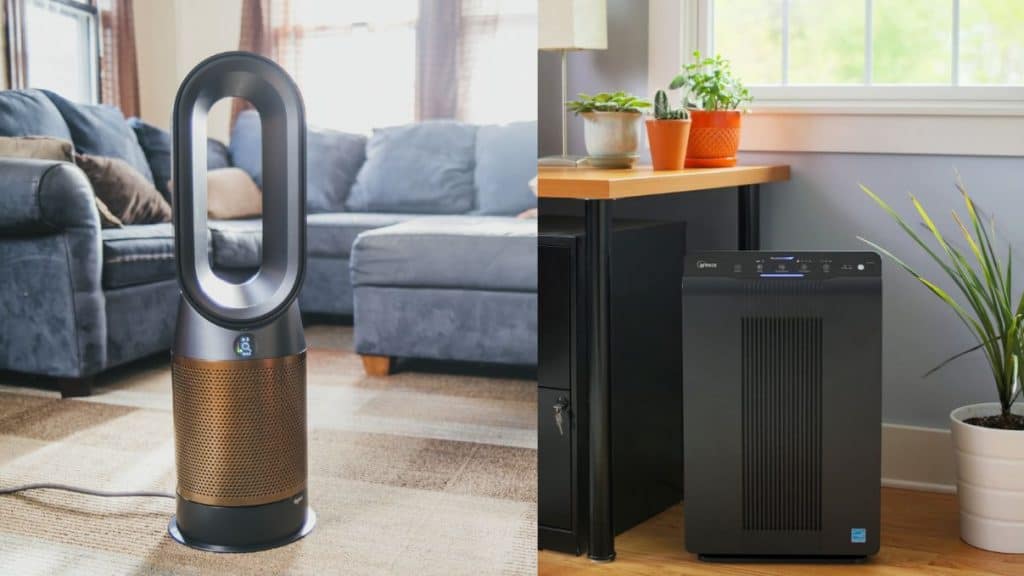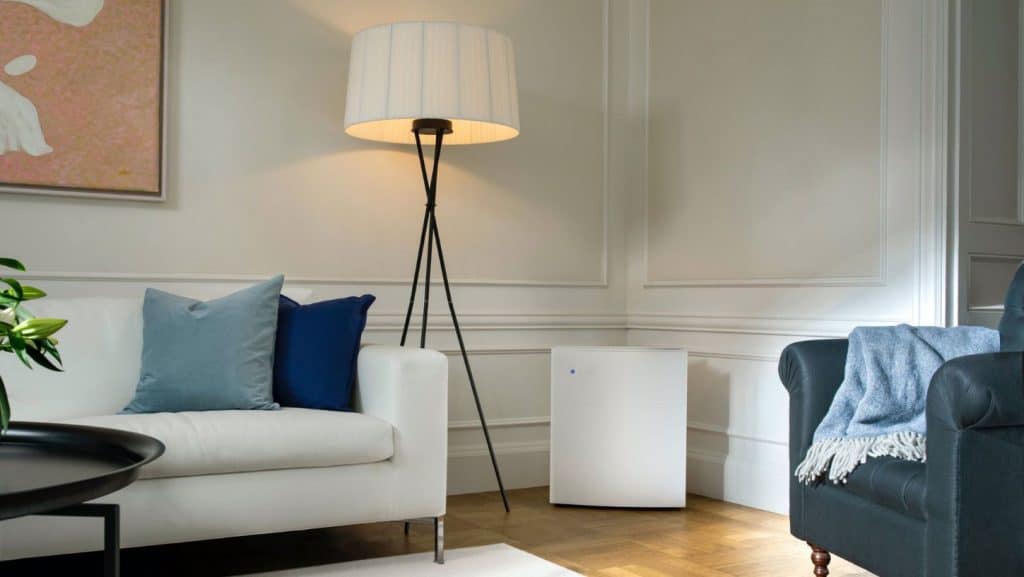Can These Two Machines Work Together?
In today’s world of hustle and bustle and stress, it’s nice to know you’re coming home to a clean, calm, and relaxing environment in your house. Air purifiers and humidifiers are just two devices that help people achieve this chilled-out atmosphere, but can you use them both in the same room?
In a word? Yes. It is both possible and even beneficial to have your air purifier and humidifier working in the same room, especially if it’s a room you spend a lot of time in such as a bedroom, living room, or home office.
Many people get confused about the possibility of combining the benefits of these two devices as they believe that one will cancel the other out or they’ll hinder the overall effectiveness of one another, but this is due largely to a lack of understanding.
Once you know how each device functions, what purpose it is designed to carry out, and how they relate to each other, you’ll understand why the answer to the big question is “yes”.
Hopefully, this article will help to clarify these considerations and you’ll leave this post feeling more confident to use both your humidifier and air purifier together!
What is a Humidifier?
The name “humidifier” tells us a lot about what we need to know. In its most essential terms, a humidifier makes things (namely rooms or spaces) more humid. They are able to do this through three main methods:
- Boiling water to make steam which is then released into the air.
- Vibrating water droplets into the air ultrasonically.
- Evaporating water into the air via fan-assistance.
All three of these methods create the same result – more water vapour in the air, meaning a more humid environment. You can also buy humidifiers that release either cool or warm water vapour, depending on what you want it for.
For instance, if you suffer with congestion, a cool humidifier might be a better fit as it will help to constrict vessels in the nasal passage whereas warm air causes swelling (and therefore increased feeling of having a blocked nose).
Why Do People Want More Moisture in the Air?
People buy humidifiers for their homes and workspaces for a number of different reasons. Depending on the specifications of your humidifier, you might find that it is also more well-suited to certain purposes than others. Some of the most common reasons people want more humid air include:
- People who get dry skin in cold weather or dry heat want to increase humidity to help sooth and hydrate their skin.
- Air that’s humid is kinder on lungs and nasal passages, particularly for people who suffer with allergies and asthma, making breathing a bit smoother.
- Humid air can also provide some relief for cold and flu symptoms such as congestion and headaches, as dry air can exacerbate these issues.
- Dry air can also irritate your throat, causing tickly feelings and itchiness in extreme cases, so more moisture in the air makes for easier breathing and less coughing.
A good way to think about humidity is to compare it with water. In many cases, water can act as a lubricant. Humidity in the air performs in a similar way, lubricating the respiratory system and skin slightly so that breathing is improved, and skin and lips feel more hydrated and supple.
In some cases, humidifiers can also have beneficial effects when it comes to allergies, as water molecules diffused into the air are able to bind with some allergenic particles, making them heavier so that they sink to the ground rather than continue floating around the air. This is not the case for all allergens however, as things like dust mites and other pathogens thrive in more humid conditions.
What is an Air Purifier?
Without going into too much detail, air purifiers are devices that utilise different types of filtration systems to clean the air in a space of pollutants, dust and dander, and some kinds of pathogens. The key difference between air purifiers and humidifiers therefore, is that air purifiers aim to remove harmful particles from the air, whereas humidifiers add water molecules to the air.
There are two main categories of air purifier which you can learn more about here, and there are several other filtration types that are often combined with air purifiers to boost their effects (such as carbon/charcoal filters).
Why Do People Want Less Particulate Matter in the Air?
Particulate matter can take the form of the following types of particles:
- Dust and dander
- Pet hair
- Pollen and other allergens
- Chemical fumes
- Cigarette smoke and other types of visible smoke
- Some bacteria and viruses
- Mould and fungi spores
- Volatile organic compounds
These things can cause irritation, allergic reactions, respiratory issues and other health concerns, which is why many people buy air purifiers.
What Happens When You Run Both Devices in the Same Room?
If you put your air purifier and your humidifier in the same room and have them on at the same time, what you should end up with is air cleaned of a large proportion of allergens and other particles, that is also nice and humid and fresh.
For anyone doubting if this is possible, think about what would happen if you lived in a really humid area and owned an air purifier; that air purifier would work just fine in the more humid air so there’s no reason that artificially creating more humidity would hinder the effectiveness of an air purifier.
The only exception to this would be if you placed both devices directly next to each other. Because the air purifier was so close to the humidifier, it might mean that excess moisture and heavier water droplets might get into the air purifier and lessen the effectiveness of its filters.
As long as you place the devices at opposite ends of the room, or at least far enough away that moisture won’t collect inside the air purifier, you’re good to go!
Air purifiers are also not designed to filter out moisture from the air so there’s no chance of the air purifier negating the effect of the humidifier. That said, there’s really no reason why you shouldn’t run both devices in the same room simultaneously.
Some Small Considerations
Potential Noise
Depending on the type of air purifier and humidifier you have, you might notice that both devices create a little bit of noise. These noises won’t be overly loud or annoying, but when combined with one another, might provide a distraction from sleep, work, or relaxation.
So although it isn’t a major issue, you might want to think about how loud your combined air purifying and humidifying efforts are going to be.
Running Cost
It goes without saying that running any electrical appliances will raise your electricity bill. If you’re running your humidifier and air purifier on an almost constant basis, you might find that your electricity use gets a bit on the pricier side.
If this turns out to be the case, you might consider running the devices one at a time at different times of the day (eg air purifier in the morning and humidifier at night). Each one will then be off when the other is running so you aren’t doubling up your electricity use.
If you aren’t phased about a slightly higher electricity bill, then have at it!
You Might Not Even NEED to Run Them Both at Once
There will definitely be times when the air will be dryer and you’ll want a bit more moisture in the air to help you breathe more easily and feel more relaxed, and some of these times include:
- During winter when the air starts out very dry
- When using central heating
- When using airconditioning
- During peak allergy seasons in the spring and winter
- If you have cold or flu-like symptoms
However, there will also be times when running both at the same time seems unnecessary. Some examples might include:
- During periods of heavy rain (air tends to be more humid)
- During the summer as warm air generally holds more moisture than cold
- If you’re holidaying or visiting friends or family near the coast where air is normally more humid
- If you moved to a country with a more tropical climate (you could probably throw out your humidifier in this case!)
Whilst it’s completely fine to run both devices at once and in the same room, you might not always need to so use your best judgement and go on how you feel!
At the End of the Day
You’ll be more than fine if you choose to run both your humidifier and air purifier at the same time, and will end up with clean, fresh air with a lovely humidity to help you feel healthier and calmer. Neither machine will affect the function of the other, so you needn’t worry about being wasteful or redundant.
Air purifiers and humidifiers come in all shapes, sizes, colours, and specifications so before you commit to buying a specific type, do your research and find out what will fir your needs, your space, and your budget.
Contents
- 1 Can These Two Machines Work Together?
- 1.1 What is a Humidifier?
- 1.2 Why Do People Want More Moisture in the Air?
- 1.3 What is an Air Purifier?
- 1.4 Why Do People Want Less Particulate Matter in the Air?
- 1.5 What Happens When You Run Both Devices in the Same Room?
- 1.6 Some Small Considerations
- 1.7 You Might Not Even NEED to Run Them Both at Once
- 1.8 At the End of the Day





